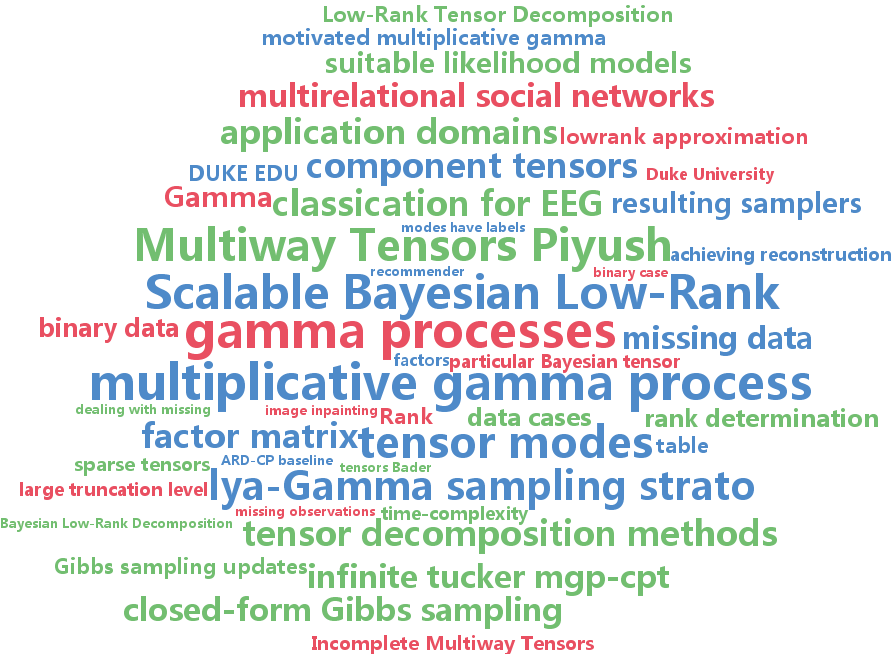missing data
-
Piyush Rai and Yingjian Wang and Shengbo Guo and Gary Chen and David Dunson and Lawrence Carin
Scalable Bayesian Low-Rank Decomposition of Incomplete Multiway Tensors (pdf)
We present a scalable Bayesian framework for low-rank decomposition of multiway tensor data with missing observations. The key issue of pre-specifying the rank of the decomposition is sidestepped in a principled manner using a multiplicative gamma process prior. Both continuous and binary data can be analyzed under the framework, in a coherent way using fully conjugate Bayesian analysis. In particular, the analysis in the non-conjugate binary case is facilitated via the use of the P\'olya-Gamma sampling strategy which elicits closed-form Gibbs sampling updates. The resulting samplers are efficient and enable us to apply our framework to large-scale problems, with time-complexity that is linear in the number of observed entries in the tensor. This is especially attractive in analyzing very large but sparsely observed tensors with very few known entries. Moreover, our method admits easy extension to the supervised setting where entities in one or more tensor modes have labels. Our method outperforms several state-of-the-art tensor decomposition methods on various synthetic and benchmark real-world datasets.
-
Jose Miguel Hernandez-Lobato and Neil Houlsby and Zoubin Ghahramani
Probabilistic Matrix Factorization with Non-random Missing Data (pdf)
We propose a probabilistic matrix factorization model for collaborative filtering that learns from data that is missing not at random(MNAR). Matrix factorization models exhibit state-of-the-art predictive performance in collaborative filtering. However, these models usually assume that the data is missing at random (MAR), and this is rarely the case. For example, the data is not MAR if users rate items they like more than ones they dislike. When the MAR assumption is incorrect, inferences are biased and predictive performance can suffer. Therefore, we model both the generative process for the data and the missing data mechanism. By learning these two models jointly we obtain improved performance over state-of-the-art methods when predicting the ratings and when modeling the data observation process. We present the first viable MF model for MNAR data. Our results are promising and we expect that further research on NMAR models will yield large gains in collaborative filtering.

